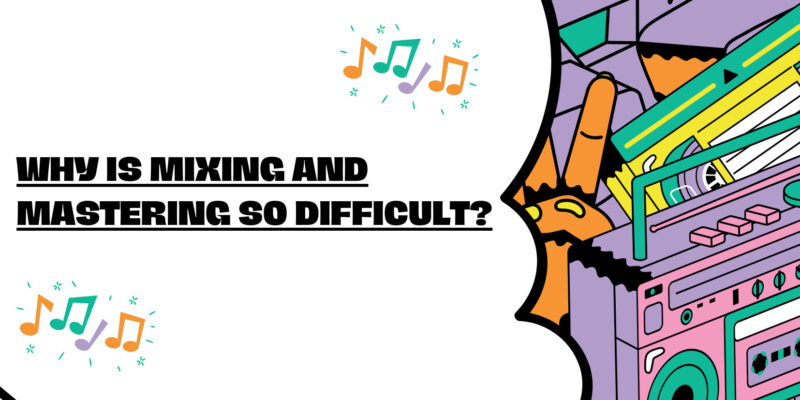Mixing and mastering are difficult for a number of reasons, including:
- There is no one-size-fits-all approach. The best way to mix and master a song will vary depending on the genre, the instruments used, and the desired sound. This means that there is no right or wrong answer, and it can take a lot of experimentation to find what works best.
- It requires a good understanding of audio engineering. Mixing and mastering require a good understanding of audio engineering principles, such as EQ, compression, and reverb. It also requires the ability to hear and identify specific frequencies and problems in a mix.
- It takes time and practice to develop good skills. Mixing and mastering are skills that take time and practice to develop. There is no shortcut to becoming a good mixer or mastering engineer.
Here are some of the specific challenges that mixers and mastering engineers face:
- Balancing the instruments. One of the biggest challenges of mixing is balancing the instruments so that they all sound good together. This can be difficult, especially when there are a lot of instruments in a mix.
- Getting a good sound out of each instrument. Another challenge is getting a good sound out of each instrument. This requires an understanding of the different instruments and how to use EQ, compression, and other effects to get the desired sound.
- Creating a cohesive mix. A good mix should sound cohesive, meaning that all of the elements should sound like they belong together. This can be difficult to achieve, especially when there are a lot of different instruments and sounds in a mix.
- Mastering for different formats. Once a song is mixed, it needs to be mastered for different formats, such as CDs, streaming services, and vinyl. Mastering for different formats requires different techniques, and it can be challenging to get a good sound on all formats.
If you are interested in learning how to mix and master music, there are a number of resources available online and in libraries. There are also many courses and workshops that can teach you the basics of mixing and mastering.
Here are some tips for beginner mixers and mastering engineers:
- Start by learning the basics of audio engineering. There are many good books and websites that can teach you the basics of EQ, compression, reverb, and other audio effects.
- Listen to other mixes and try to identify what you like and dislike about them. This will help you to develop your own taste and style.
- Experiment with different techniques. Don’t be afraid to experiment with different EQ settings, compression settings, and other effects. The best way to learn is by doing.
- Get feedback from others. Ask other musicians, producers, and engineers to listen to your mixes and give you feedback. This can help you to identify areas where you can improve.
Mixing and mastering are challenging skills, but they are also very rewarding. With time and practice, you can develop the skills you need to mix and master your own music to a professional standard.


